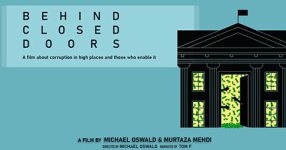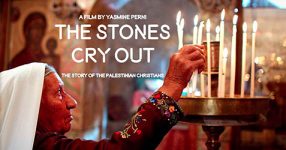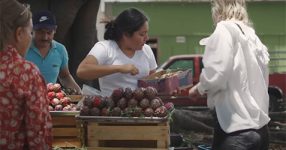In the realm of provocative documentaries, “Farmlands” by Lauren Southern stands out as a polarizing exploration of the challenges faced by South African farmers. As a Canadian far-right political activist and journalist, Southern delves into the intricate web of South Africa’s history, politics, and the alarming rise in violence against white farm owners.
Exploring the Roots: South Africa’s Complex History
To comprehend the current turmoil in South Africa, it’s crucial to rewind to 1652 when the Dutch East India Company established the Cape Colony. The dynamics between the VOC and the indigenous Khoisan people set the stage for a history marked by injustice and rebellion. Fast forward to 1910, the Union of South Africa emerged, solidifying a complex separation of blacks and whites.
Farmlands Unveiled: Unraveling the White Genocide Narrative
Lauren Southern’s documentary focuses on the unsettling issue of land ownership and the escalating violence against white farmers. The film questions the government’s role in concealing the grim reality and accuses law enforcement of manipulating statistics. The narrative scrutinizes the impact of “black economic empowerment laws” and sheds light on destitute white families living in squatter camps, portraying a side often overlooked.
The Crisis Unmasked: Rise in Violence and Government Response
The documentary underscores the disturbingly high crime rate in South Africa, highlighting daily protests and the burning of public structures. Since the resolution allowing land seizure without compensation, there has been a surge in the murder of white farm owners. “Farmlands” accuses the government of downplaying racially motivated attacks, sparking a heated debate on the film’s intentions and the broader implications of its message.
Voices of Dissent: Unraveling the Controversy Surrounding “Farmlands”
Lauren Southern and her documentary have faced vehement criticism, with accusations of thinly veiled racism and a biased narrative. Critics argue that her portrayal serves as a cautionary rebuke to the end of apartheid, sounding an alarm for westerners becoming the new minority. Viewers are left to decide whether the depicted events and personal stories in “Farmlands” are a distorted lens on reality or indicative of a larger epidemic of racially motivated violence.
In a landscape filled with conflicting information about South Africa, “Farmlands” emerges as a thought-provoking exploration. Southern’s quest for truth takes viewers on a journey through history, shedding light on the complex tapestry of the nation’s past and present. As the documentary sparks intense discussions, it forces audiences to confront uncomfortable questions about justice, race, and the potential for a nation on the brink of a seismic shift.
In conclusion, “Farmlands” transcends its controversies, urging viewers to engage critically with the multifaceted issues it presents. Southern’s bold approach may be divisive, but in the quest for understanding, the documentary becomes an essential piece in unraveling the intricate narrative of South Africa’s farmlands.












